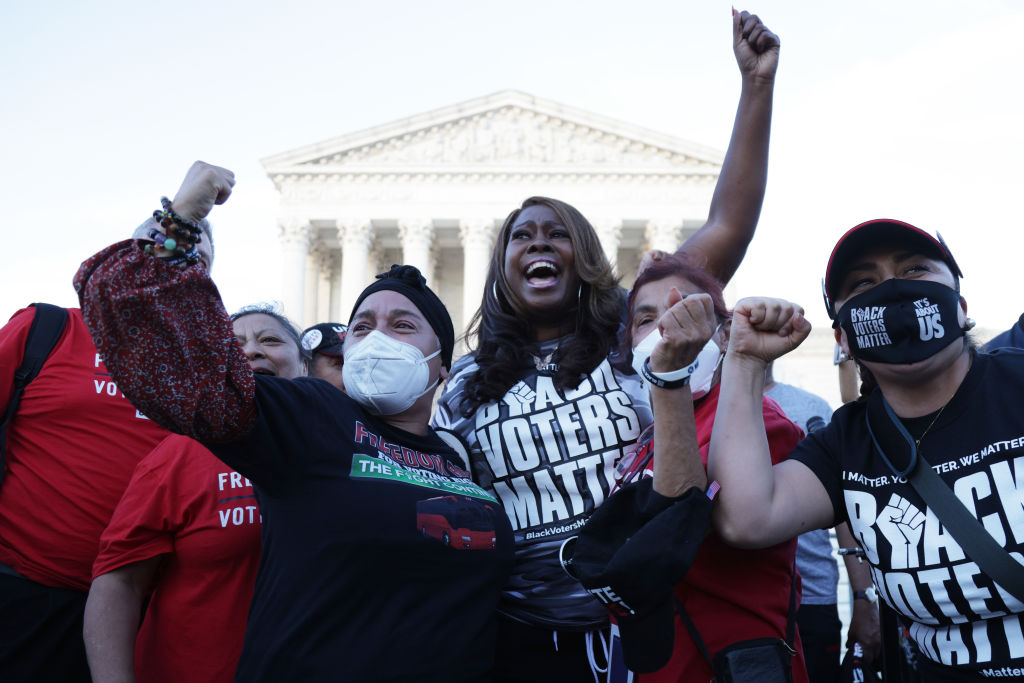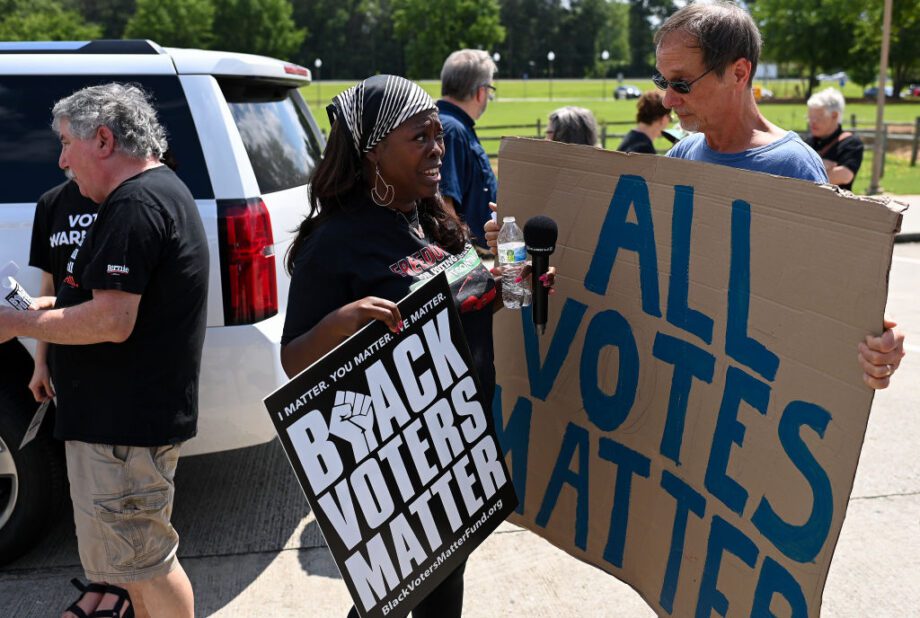Source: The Washington Post / Getty
In an exclusive discussion with NewsOne, Black Voters Matter Fund co-founder, LaTosha Brown explains why the right-wingers have gone after TSU–and how that has larger consequences for us all.
Responding to the right-wing attack that has disrupted leadership and funding at an HBCU, Tennessee State University (TSU), students convened civil rights leaders including Bishop William J. Barber II, Rev. Dr. Frederick Douglass Haynes III, Tamika Mallory and Latosha Brown for a major press conference yesterday morning. The gathering at the Rotunda at the Tennessee State Capitol in Nashville, Tennessee, was instigated by Tennessee Republican Gov. Bill Lee’s decision to suddenly remove most of TSU’s Board–eight of the 10 trustees–and put his own people in place.
But the attacks on the University that educated Oprah Winfrey are longstanding–and part of a larger right-wing assault on HBCUs that can be characterized as deeply racist. Indeed, the Biden administration conducted a study that found that TSU alone is owed over $2.1 billion in state funds, a debt that has accrued since 1987. Yet, without any reasonable evidence, TSU has been subjected to incredible levels of scrutiny–which bore no fruit—and wrongfully labeled as financially reckless.

Source: Alex Wong / Getty
NewsOne spoke exclusively with the nationally renowned co-founder of Black Voters Matter Fund, LaTosha Brown, a 2019-2020 Resident Fellow at Harvard’s Institute of Politics and the recipient of multiple awards for work, including the Obama White House Champion of Change Award in 2010.
$2.1 billion is owed to Tennessee State University.
Asha Bandele: LaTosha, why do you think this line of attack [on the Board of Trustees] was the tactic they chose, and why now?
LaTosha Brown: This attack arose because TSU’s Board began asking about the $2.1 billion in funding that was owed to them over the past 30 years. TSU is owed more than any other HBCU in the country and this bait-and-switch game is an attempt to deflect from the state’s responsibility to the university.
AB: What are the biggest harms the attacks on HBCUs cause students and the Black community?
The majority of Black professionals and talent comes out of HBCUs, so when you attack our institutions it’s really an attack on opportunities for Black people. It has a tremendous impact not only now but on future generations. These institutions are not only centers for education for Black students, but also centers of Black life.
Most Black talent comes out of HBCUs.
AB: Given the Republican attacks on our HBCUs–which goes back years–do you see this removal of Trustees as the new line of attack?
LB: This is a continuation of the ongoing attacks on Black people and Black institutions. We’re seeing a wave of racist attacks on Black history, on voting rights, on DEI programs and on education. Land grants and HBCUs have been stabilizing institutions in our communities, but what has accelerated this hostile takeover of TSU specifically is the state’s negligence in providing the federal funding it was allocated to support the University. The fact that TSU was subjected to five audits in one year, which ultimately cost taxpayers $2 million, over a discrepancy found in the audits of less than $4,000 is absurd, and is only amplified by the increased racial animus that we’re seeing in this country.
AB: What do you recommend that Black students and academics (at any school, HBCU or not) do to support TSU and HBCUs generally?
LB: Students, academics and all stakeholders need to ask some questions of Tennessee’s legislature. Why is the University of Tennessee (UT) [where nearly 80% of the students are white] treated vastly different from Tennessee State University? UT was given funds to support student housing by leasing a hotel. But in a similar housing situation, TSU had to go back to the legislature to ask for funding that was already owed to them which triggered multiple audits that uncovered virtually nothing–but which was still used to take over the Board. Finally, we need to collectively demand that states pay up and release the federal dollars that were and are earmarked for HBCUs. It’s been 30 years in TSU’s case. We must put pressure on these states to pay the debt and fully fund our institutions.
SEE ALSO:
Tennessee State University Hosts Protests After Governor Strips HBCU Of Its Board Of Trustees
White HBCU Professor Wins Racial Discrimination Lawsuit Against Harris-Stowe State University




